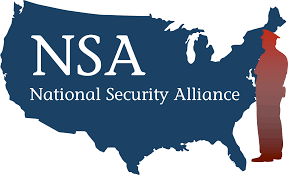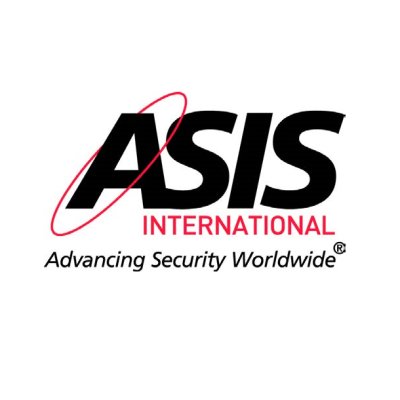Topics Covered

Navigating Security Guard Licensing Requirements: A State-by-State Guide
Being a professional security officer is a challenging job and can be a springboard into many different types of careers in the security industry. But it all starts with firsthand guarding and patrol experience. There’s a lot of job security in security. There is plenty of demand; private contract security firms are always hiring good people, and the skills are highly transferable. The issue for many is that the licensing requirements for each state are unique and not transferable.
There is no national body regulating the training, certification, and licensure of private security guard firms and their officers; it is left to each state to determine its own standards and policies for regulating the contract security guard industry.
Some states have oversight boards that set stringent testing and licensing standards based on state-approved training, some require just a basic training course and a background check, while a few ask for nothing beyond a valid driver license and proof of 18 years of age. States also have unique lists of disqualifying factors and exceptions, uniform rules, license renewal cycles, etc.
So, if you get licensed in one state and move to another, you’ll most likely have to go through the certification process of your new home state. Thinking of relocating? It’s a good idea to investigate the licensing requirements for your destination and perhaps even take the state-approved training before arrival so you are immediately employable. Do you manage a security firm operating in two or more states with guards that cross the border, like Utah and Colorado, or California and Arizona? Officers must be licensed in both states.
Defencify offers state-approved online unarmed security guard training for 10 states. Our self-paced, remote courses can be taken whenever and wherever you want so you can be licensed in the state you want. Defencify courses are created by our team of instructional designers working closely with the licensing authorities in each state to ensure the training meets the minimum requirements to earn your Guard Card.
This article reviews the licensing requirements for each state in which Defencify is authorized to provide training. We’ll discuss the duties and skills needed for the job, why online training is the best option for both guards and firms, and point you to related resources for more detail along the way.
Navigating State-Specific Security Guard License Requirements
Arizona
There are two classifications of security guards in Arizona: unarmed and armed. Both require applicants to be at least 18 years old and licensed before being assigned to a post as a security guard. The Arizona Department of Public Safety Licensing Unit is the agency tasked with regulating security guards, security agencies, private investigators, and private investigative agencies across the state. To earn a license as an unarmed security guard, candidates must take a mandatory 8-hour basic training course, pass the final exam, and present a certified course completion certificate to the Arizona DPS Licensing Unit. Armed security guards require an additional 16 hours of firearms training. View Arizona Security Guard License Requirements >>
California
A license is required to be employed as an unarmed or armed security officer in California. In California, the Bureau of Security and Investigative Services (BSIS) provides regulatory oversight of the security industry and sets the standards for training and eligibility criteria for private security guards. Unarmed guards must be 18 and complete 40 hours of BSIS-approved training from a BSIS-certified training provider. Armed guards must be 21 or older and complete an additional 14 hours of firearms training. View California Security Guard License Requirements >>
Colorado
Colorado requires security companies and officers to be licensed, but does so at the County level, not statewide. That means licensing and training standards can vary from one county and city to the next.
For example, the city of Denver mandates that new security guard applicants attend 16 hours of Denver Police Department-approved training, while Colorado Springs requires only eight hours. Some smaller cities and rural areas have no training requirements at all. This can make the application process confusing and difficult, especially for people coming from other states or even moving in state. Our best piece of advice here is to contact the City Clerk in the jurisdiction in which you seek employment as a security guard. They will have the specifics for obtaining a Guard Card in that Colorado city and county. View Colorado Security Guard License Requirements >>
Delaware
Delaware requires security guards to be licensed. However, the process for getting a Guard Card, called a “Yellow Card” for unarmed guards or a “Red Card” for armed guards in Delaware, is different from other states in that there is no government agency dedicated to security guard licensing. Rather, licenses are processed through the state police. Applicants for a Yellow Card must complete state-approved training. There is no minimum hourly requirement for the content (it usually takes 8 to 12 hours to complete the training), but all applicants must pass a written exam with a minimum grade of 75%. Those going on to apply for a Red Card endorsement can then complete 40 hours of additional state-approved firearms training. View Delaware Security Guard License Requirements >>
Georgia
There is no license or registration needed to be an unarmed security guard in Georgia. Anyone 18+ who is legally allowed to work in the state of Georgia can be an unarmed security guard. In Georgia, only the security agency and its owners must be licensed, not employees serving as unarmed security guards The Georgia Board of Private Detective and Security Agencies (GBPDSA) is the government body that regulates the security industry. (Armed guards are required to register with the state). Any potential legal or financial damages arising from a guard’s conduct while on duty will be covered under the employer’s license and liability insurance – provided they can show proof of employee education for compliance purposes.
As such, while there is no license to be an unarmed security guard in Georgia, candidates must show proof of education before getting hired by a licensed security agency. This requires completion of 24 hours of a GBPDSA-approved security training course from a Board-certified training provider or instructor. View Georgia Security Guard License Requirements >>
Illinois
In Illinois, licensing for private security guards is required and handled by the Illinois Department of Financial and Professional Regulation (IDFPR). Licenses are called a Permanent Employee Registration Card, or PERC. Applicants must obtain a PERC from the IDFPR to work as a security guard in Illinois. To do that, candidates must be at least 18 and complete an IDFPR-approved 20-hour security training course and submit an authorized certificate of completion with their PERC application. Additional firearms training is required for armed guard status. View Illinois Security Guard License Requirements >>
Minnesota
Like Georgia, Minnesota does not require individuals working as unarmed security guards to be licensed, but they must work for a security company that has the proper license and insurance. Licensed security guard firms, called Protective Agent Services providers, are overseen by the State of Minnesota Board of Private Detective and Protective Agent Services, a division of the Minnesota Department of Public Safety (DPS). Unarmed security guards are officially referred to as protective agents. As per Minnesota DPS, unarmed protective agents must be at least 18 years of age, complete 12 hours of state-approved training within the first 21 days of employment, and present a certificate of completion from an authorized training provider.
In Minnesota it is often best to get hired first, and then have the firm sponsor the protective agent’s application and training with the state. Further, protective agents must take 6 hours of refresher training every year, and there are a couple of other requirements unique to Minnesota, such as providing letters of character reference. View Minnesota Security Guard License Requirements >>
Tennessee
A person needs to be licensed and registered with the Tennessee Department of Commerce & Insurance Private Protective Services division to work as a security guard in this state. All candidates must be at least 18 and complete four hours of state-mandated unarmed guard training from a state-approved training provider, pass a final exam, and present a certificate of completion to the Tennessee Department of Commerce before they can be assigned to a post as a security officer. With the minimal amount of training required, candidates can earn a Tennessee Guard Card in less than one day. View Tennessee Security Guard License Requirements >>
Texas
Texas requires a license and training for unarmed and armed security guards. The Department of Public Safety (DPS) Private Security Bureau regulates the industry in Texas. To earn an unarmed security guard license, applicants must complete four hours of Level II training, pass a final exam with a minimum 75% score, and present a signed certificate of completion from a DPS-approved training provider. Armed guards (Level III) and bodyguards (Level IV) must compete additional training as well, but only Level II training is approved for online delivery.
In Texas, the first step to getting a security guard license is to be hired by a licensed private security company, or at least be in the process of getting hired. The security company submits the application package including training certificates on behalf of the applicant. However, candidates may complete Level II training prior to applying for a job. View Texas Security Guard License Requirements >>
Utah
Utah requires unarmed and armed security guards be licensed and registered with the state’s Division of Occupational and Professional Licensing (DOPL). Candidates must be 18 and complete a DOPL-approved 8-hour basic training course, pass the final exam, and submit a certificate of course completion. In Utah, guards do not have to be a resident of the state, all that is required is proof of citizenship or right to work. Licenses are good for two years, but unarmed guards must show proof of 32 hours of continuing education since their license was issued to get renewed. View Utah Security Guard License Requirements >>
Security Guard License Regulations by State
| State |
License Required |
Minimum Age |
Hours of Training |
License Term |
Bkgd Check/ Finger-prints |
State |
Defencify |
|---|---|---|---|---|---|---|---|
|
Arizona |
Yes |
18 unarmed |
8 |
2 years |
Yes |
Yes |
|
|
18 armed |
8 + 16 firearms |
||||||
|
California |
Yes |
18 unarmed |
40 |
2 years |
Yes |
Yes |
|
|
21 armed |
40 + 14 firearms |
||||||
|
Colorado |
Yes (by County) |
21 unarmed |
Varies by jurisdiction |
1 year |
Yes |
Contact the City Clerk in county of interest |
Yes |
|
21 armed |
|||||||
|
Delaware |
Yes |
18 unarmed |
8 to 12 |
5 years |
Yes |
Yes |
|
|
21 armed |
8 to 12 + 40 firearms |
1 year |
|||||
|
Georgia |
Unarmed: No |
18 unarmed |
24 |
Length of employment with firm |
Yes |
Georgia Board of Private Detective and Security Agencies (GBPDSA) |
Yes |
|
Armed: Yes |
18 armed |
24 + 15 firearms |
|||||
|
Illinois |
Yes |
18 unarmed |
20 |
3 years |
Yes |
Illinois Department of Financial and Professional Regulation (IDFPR) |
Yes |
|
21 armed |
20 + 20 firearms |
||||||
|
Minnesota |
No |
18 unarmed |
12 |
Length of employment with firm |
Yes |
State of Minnesota Board of Private Detective and Protective Agent Services |
Yes |
|
21 armed |
12 + 12 firearms |
||||||
|
Tennessee |
Yes |
18 unarmed |
4 |
2 years |
Yes |
Tennessee Department of Commerce & Insurance Private Protective Services |
Yes |
|
21 armed |
4 + 12 firearms |
||||||
|
Texas |
Yes |
18 unarmed |
4 |
2 years |
Yes |
Yes |
|
|
21 armed |
4 + 45 firearms |
||||||
|
Utah |
Yes |
18 unarmed |
8 |
2 years |
Yes |
Utah Division of Occupational and Professional Licensing (DOPL) |
Yes |
|
18 armed |
8 + 12 firearms |
Advantages of Online Security Guard License Training
For individuals seeking to earn or renew their license as an unarmed security officer, and for private contract security firms trying to build a pipeline of qualified candidates, online training is a win-win.
For individuals, online training allows learners to take courses on their schedule. They can take and repeat modules and quizzes without fear of embarrassment or wasting others’ time in a classroom environment. Online training eliminates barriers like travel time and expense, scheduling conflicts, arranging for childcare, or taking time off from a current job to attend live training. See this article for an up-to-date list of states that allow online unarmed security guard training.
For private security guard firms, online training eliminates the need and costs for instructors, room rentals, supplies, and meals for attendees. It ensures consistency and accuracy in the information presented to all learners. More importantly, it relieves security firms of the financial and administrative responsibilities of creating and updating original courseware and ensuring their training meets state criteria for topics, length, and testing to yield a Guard Card.
That’s exactly what the Defencify platform offers.
Learners can take courses where and when they want, at a pace that is comfortable for them to absorb the information, on the device they want. Defencify courses are SCORM-complaint for proper viewing on any operating system or device – PC, laptop, tablet, or smartphone.
Security firms can rest assured the training is guaranteed to meet state-specific criteria for guard certification. Defencify instructional designers work closely with state authorities to ensure courseware meets each state’s unique licensing requirements and are periodically updated to maintain compliance. Defencify courses are designed using modern eLearning techniques and incorporate games, role play exercises, interactivity, and testing to keep students engaged.
Defencify puts security firms in control of training content, scheduling, and costs. Courses can be customized and branded to make the training appear as a native component of the company website, and the Defencify platform includes powerful reporting tools and cloud-based records management to ease administrative burdens. Learn more about why Defencify is the best choice for remote self-paced training here.

Duties and Skills of Security Officers
The responsibilities of a frontline security officer vary by the post. It may involve checking visitor credentials at a corporate reception desk or guard house at the entrance to a gated residential community.
It may be patrolling a car dealership lot after hours, screening fans entering a stadium for a concert or game, being a visible deterrent against violence in crowds, or watching for theft in a retail environment.
Whatever the assignment, proper training helps prepare security officers to spot suspicious activity, intercede or separate people, de-escalate heated situations, protect business assets, come to the aid of victims, and even protect themselves within the limits of the law.
Defencify provides critical training on subjects such as:
- Power to Arrest
- Proper Use of Force
- Terrorism Awareness
- Crisis Intervention
- Ethics & Professional Standards
- Evacuation & Crowd Control
- Handling Difficult People/De-escalation Tactics
- Observation & Documentation
- Search & Seizure
- CPR/Basic First Aid
All guaranteed to yield state-approved training certificates.
But some skills cannot be taught; the best security guards have an innate sense of what it takes to be a trusted public figure. These traits include:
- Strength and physical stamina
- Ability and willingness to physically intervene if necessary
- Keen sense of judgement for things that don’t seem quite right
- Visible yet approachable
- Quick-thinking/reacting
- A strong stomach
- Technical proficiency
- Excellent communication skills
- Patience
The bottom line is that it’s not always the biggest, strongest, or most intimidating-looking candidates that make the best security guards (although that sometimes helps); rather it is a combination of strength, compassion, awareness, and communication that best gets the job done. Check out this blog for more detail on what it takes to be a security guard.
Transforming a Security Guard Job into a Security Career
This article has focused mainly on the training requirements to obtain a security guard license and the responsibilities of being a new frontline security officer. And for good reason: as with most careers you’ve got to start at the entry-level position and work your way up (the one caveat here being retired law enforcement personnel).
In truth, there aren’t many people who are interested in being a security guard on patrol forever; most want to move up the corporate ladder and transform their jobs into careers in security. Having firsthand experience as a security guard can be a springboard to many different careers in the security industry, such as:
- Team or branch manager of a security guard firm
- Owner of a private security firm
- Law enforcement
- High profile bodyguard/event security (professional teams, celebrities, political figures)
- Private investigator
- Casino and gaming surveillance
- Department of Homeland Security officer
Continuing education opportunities are key to both career development and employee retention, and a great tool to combat the number one issue facing private contract security firms: turnover. Read this article to learn more about getting the education in security you need to further your career.
The Business Case for Online Security Guard Training
Online training makes sense for businesses that need to train and certify a continuous stream of new hires on the same exact information. It eliminates the subjectivity of instructor-led classes, delivers the content consistently to all learners every time, and eliminates many of the costs associated with live training such as instructors, classroom materials, meals, and room rentals.
Online training allows for a larger candidate pool as it removes many barriers to completing necessary training, and offers zero risk. With Defencify, for example, training is sold by seat licenses, which are low cost and easily transferable to the next class of new hires. Customers pay for training modules taken by employees and are free to cancel at any time.
Creating effective eLearning courseware is not cheap. However, the one-time costs of module development and programming is a fraction of the price for conducting repetitive live training over the long term. Also, consider the cost per seat will decrease over time as module development is amortized over a student population that could be consuming the course for years without incurring additional expenses.
Putting a hard number of the cost of upfront courseware development and then calculating the savings achieved by online training is difficult as expenses vary widely given the subject matter and length of training. But we can compare the elements required to perform live versus online training and draw some basic cost analysis conclusions. Learn more about the advantages of adopting online training here.
Free 4 Course Trial
Understanding state-specific licensing requirements for being an unarmed security guard is necessary for individuals entering the industry so they can make proper decisions and successfully complete the application process.
For private contract security firms, hiring properly trained officers with a valid security guard license improves the quality of service and keeps the business in compliance. Should an incident occur, demonstrating proof of education is necessary to insulate the firm against liability. Firms that do not verify their officers are licensed risk fines, penalties, and suspensions from state authorities in the event of an audit.
Why undertake the time and effort of building original courseware, deliver expensive live training, or buy off-the-shelf training modules that cannot be customized when Defencify has already done the work for you?
Defencify courses are guaranteed to satisfy the licensing requirements for every state in which we are authorized to provide remote training. Defencify courses are extremely affordable, customizable, and universally accessible. Students can take a course wherever, whenever it is convenient for them on any device. New hires can start the training immediately; there’s no need to wait weeks for a class to fill up.
The Defencify online security guard training platform is the best choice for your contract security firm, and we’ll prove it.
Try Defencify for free.
Click here to get a free trial of four Defencify courses and see how easy it is to ensure your workforce is properly licensed and in compliance with Defencify.






